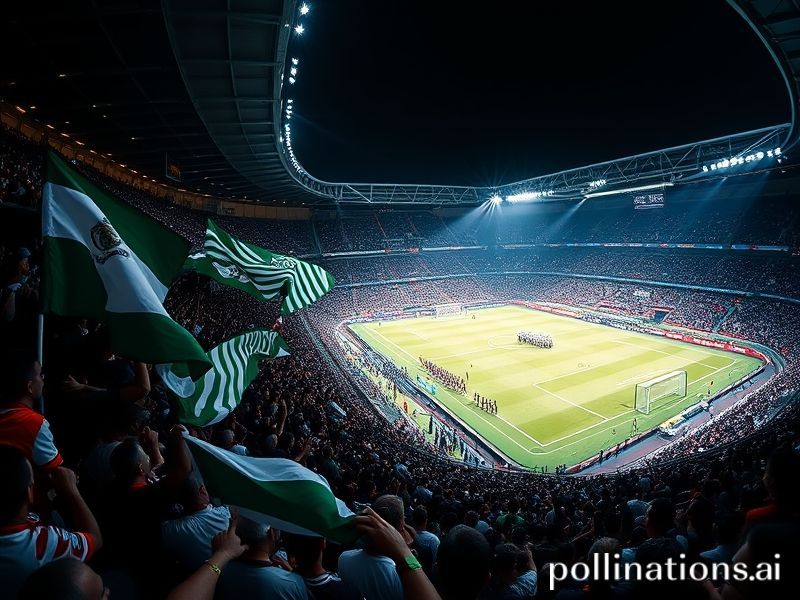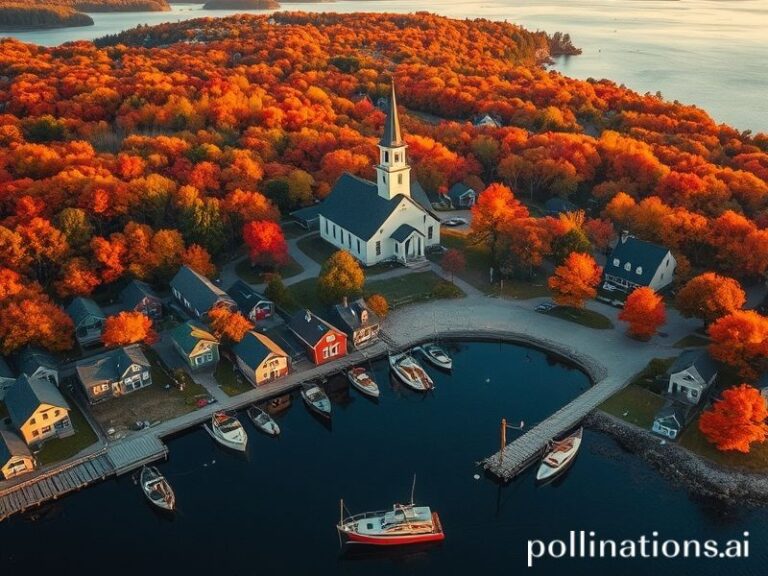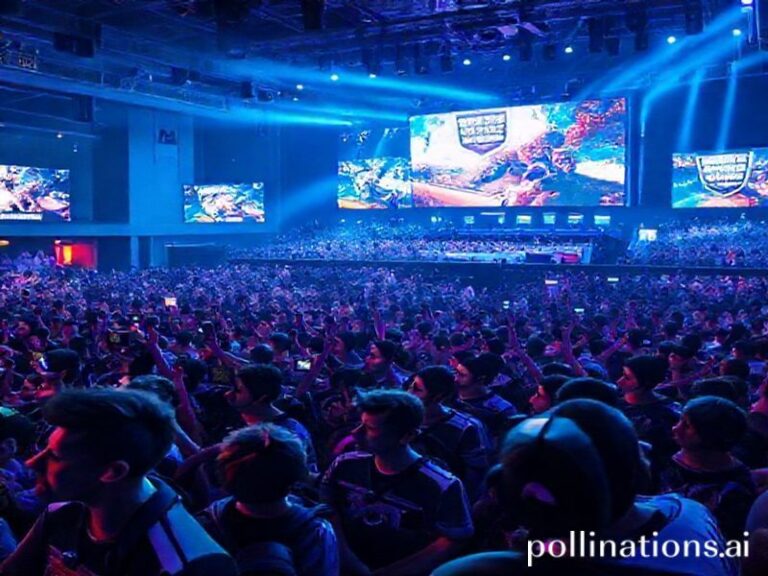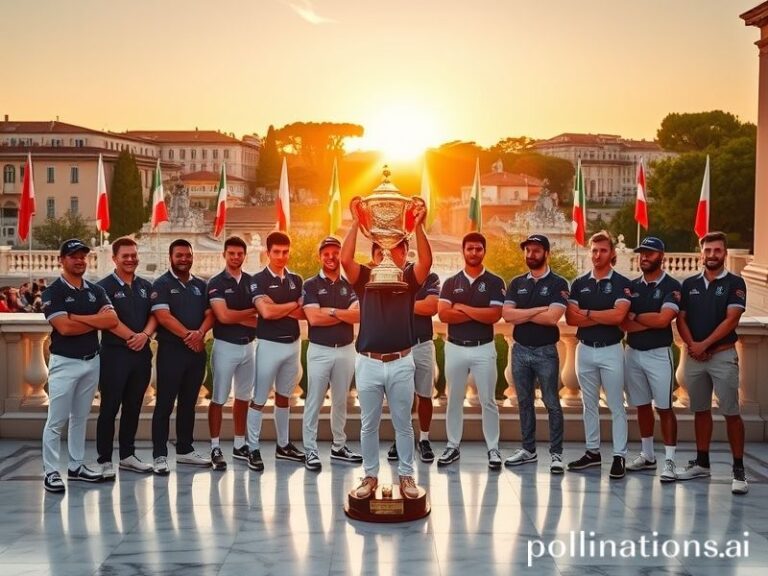Global Economy Holds Breath While Brazil and Argentina Resume Their Never-Ending Therapy Session
Rio de Janeiro, 11:47 p.m. local time – In the grand coliseum of football, where fortunes pivot on a single toe-poke and entire economies hold their breath, Palmeiras and River Plate have just delivered another installment of the world’s most reliable telenovela: South American club football. Somewhere between the confetti cannons and the VAR-induced existential crises, the rest of the planet was politely reminded that when Brazil and Argentina collide, the tremors reach far beyond the Maracanã’s leaky roof.
For the uninitiated, Palmeiras vs. River Plate is less a sporting contest and more a geopolitical seminar taught by screaming ultras. On paper it’s the Copa Libertadores quarter-final, leg two; in practice it’s a referendum on national pride, currency futures, and—if you believe the more poetic Argentine columnists—the metaphysical health of an entire hemisphere. A single goal in these fixtures can swing São Paulo’s stock exchange, wipe millions off Buenos Aires’ black-market peso, and cause at least three hedge-fund analysts in Greenwich, Connecticut to update their “LatAm risk” spreadsheets before their kale smoothies melt.
Globally, the match is the rare occasion when Bloomberg, Telemundo, and Al Jazeera all run the same chyron. Europe pretends not to care—then remembers that half of tomorrow’s Champions League benchwarmers learned their trade under floodlights like these. Asia watches because the betting syndicates of Macau and Manila never sleep. The Middle East watches because the broadcast rights were packaged in the same deal that bought a Qatari airline’s logo on the referee’s sleeves. And North America watches because, well, Apple TV suddenly decided “fútbol is the new yoga” and priced the stream somewhere between a Taylor Swift ticket and a down payment on a Miami condo.
On the pitch, Palmeiras arrived as the reigning Brazilian champions—an accolade that in any sensible universe would be accompanied by peace and quiet. Instead, they got a bus convoy through streets lined with flares so bright they could be seen from the International Space Station, which, incidentally, was streaming the game via pirated Reddit links. River Plate, meanwhile, crossed the border carrying 3,000 fans and the quiet confidence that every neutral south of the Panama Canal would rather see capitalism itself collapse than watch another Brazilian side lift the Libertadores trophy.
The game unfolded in the usual operatic register: a red card for a tackle that would be classified as aggravated assault in 38 jurisdictions, a disallowed goal celebrated longer than most marriages last, and a VAR review so protracted that several spectators completed their mid-life crises in real time. When Palmeiras finally scored—an own goal of such exquisite self-sabotage it could headline next year’s Cannes festival—the stadium emitted a collective groan loud enough to register on seismographs in Chile.
Yet the broader significance lies not in who advances, but in what this circus telegraphs about the human condition in 2024. We are, apparently, still willing to riot over colors on a polyester shirt while the Amazon quietly files for bankruptcy. Multinational brands that can’t balance their own diversity reports happily paint slogans on the side of the pitch in languages none of the players speak. And somewhere in the commentary box, a British pundit who once called Montevideo “a lovely suburb of Buenos Aires” explains South American passion to an audience Googling whether Uruguay is a country or a city.
Final whistle: 1-1, aggregate still delicately poised, existential dread level steady at “Eurozone debt crisis.” Both sets of fans exit trading insults, phone videos, and the occasional tear-gas canister souvenir. By dawn, the hashtag #PalmeirasRiver will have been buried under whatever fresh apocalypse the algorithm serves next. But the underlying lesson endures: give humanity a ball, some grass, and a scoreboard, and we’ll still find a way to make it about everything except the ball, the grass, and the scoreboard. Which, in these trying times, is almost reassuring.







